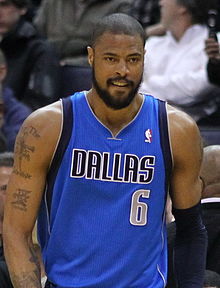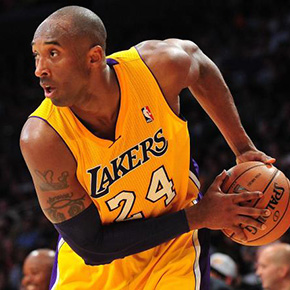 Leave it to Jeff Van Gundy to use the holiday season as another outlet for his vastly underrated sense
Leave it to Jeff Van Gundy to use the holiday season as another outlet for his vastly underrated sense  of humor.
of humor.
During Wednesday’s ESPN telecast of New York-Dallas, the analyst said he was thankful that there were not two Eastern Conferences.
But as Thanksgiving quickly morphed into the Christmas shopping season, perhaps Van Gundy could ask Santa Claus for another Western Conference. Because that would allow us to throw out the Eastern Conference with all the torn wrapping paper, ugly sweaters and holiday fruitcakes.
We are barely a month into the season, and the West’s dominance of the East already is overwhelming with a 63-26 record.
Six West teams have yet to lose to an East team, including the awful Lakers. Only four West teams have a losing record against the East, including Oklahoma City, which should fix that anomaly once Kevin Durant rejoins Russell Westbrook in the lineup.
Meanwhile, only two East teams have winning records against the West: Toronto, which is 4-2, and Milwaukee, which is 3-1. All but one of those wins have come at home.
The West’s current pace is even more dominant than last season, when it had a 284-166 record in interconference games and a dozen teams with winning records against the East. By contrast, the East had just four teams winning winning records against the West.
It’s hard to figure how things have gotten even worse for the East. In the offseason, all of the conference’s big-time free agents – LeBron James, Carmelo Anthony, Chris Bosh, Kyle Lowry, Luol Deng, Marcin Gortat, Lance Stephenson, Greg Monroe, Paul Pierce – stayed home, so to speak.
And while similar lack of movement took place in the West – Dirk Nowitzki, Chandler Parsons, Eric Bledsoe, Gordon Hayward and Isaiah Thomas all continued to lean left geographically – you could argue that two of the offseason’s biggest shifts  benefited the East.
benefited the East.
One was the obvious blockbuster of Kevin Love coming to Cleveland for a pair of unknown quantities in Andrew Wiggins and Anthony Bennett. The other was Pau Gasol leaving Los Angeles to sign with Chicago.
The only comparative deal benefiting the West was Dallas reacquiring Tyson Chandler in a trade with New York. Can we really attribute the West’s increased dominance to one trade?
Of course not. This has been a generational shift in place since the mid-1990s, when the Lakers landed Shaquille O’Neal and Kobe Bryant. One year later, the Spurs drafted Tim Duncan. All three spent their primes in the West.
Over the last 20 years, there have been four indisputably transformational, transcendent talents who will be remembered among the greatest players of all time. Among the quartet, only James has resided in the East. And that imbalance is what – over time – has made the NBA’s conferences look like separate leagues.
Since Michael Jordan’s second retirement in 1998, there have been 16 champions. The West has won 11 times, and 10 of those – five apiece – have been won by the Spurs spearheaded by Duncan and the Lakers led by Bryant and O’Neal.
The extended presence of those three players in the West forced the hand of title-hungry competitors. Think about how much the Trail Blazers and Kings loaded their rosters in an attempt to upend the Spurs and Lakers. Consider the Mavericks, who finally broke through in 2011. Look at the moves made by the Clippers (Spencer Hawes), Warriors (Shaun Livingston) and Rockets (Trevor Ariza) over the last several seasons, including this summer.
The trickle-down effect of Duncan, O’Neal and Bryant has been undeniable. Teams in the West had much more to overcome in knocking off the Spurs or Lakers and realizing the dream of winning a championship. And many went all in, adding as many quality players as they could within – and sometimes outside – the constraints of the salary cap.
In the East, the MO has pretty much been, “Let’s get to the Finals and see what happens.” Before the Heat’s current four-year run, nine different East teams made the Finals in 12 years. Five of those teams were overwhelmed in the  championship round, winning one game or less.
championship round, winning one game or less.
To further illustrate the dominance of the transcendent quartet, consider that three of the East’s five titles since 1998 have been won by the Heat, with either O’Neal (2006) or James (2012, 2013) at the controls. You can argue the impact of Dwyane Wade’s presence on those teams, but the truth is he hasn’t been close to a championship without a transcendent talent alongside him.
And the East’s other two titles were the result of West-to-East shifts by prominent players. The 2004 Pistons acquired Rasheed Wallace, who started the season in Portland. The 2008 Celtics acquired Kevin Garnett from Minnesota and Ray Allen from Seattle.
Consider that the West’s winning percentage of .708 this season is remarkably similar to its Finals winning percentage of .688 over the last 16 years. Coincidence? We think not.
So when will it change? On the surface, it appears to be soon, although that’s what East supporters have been saying (and hoping) for much of this decade. O’Neal is gone and Bryant and Duncan are nearing the end, leaving only James with several years of prime to level the imbalance.
But the challenge of keeping up with the Joneses has built new legitimate contenders in the West. Look at the Warriors, Mavs, Rockets and Thunder, all of whom will have windows of opportunity when the Spurs finally sputter. And we haven’t even mentioned the Grizzlies, who currently have the NBA’s best record and are 11-0 against the West.
Meanwhile, virtually everyone considers the East a two-team race between the Cavaliers and the Bulls, the latter of which it should be noted has not even reached a Finals, let alone won one, since a guy named Jordan played for them. Are we really supposed to consider the Raptors a championship contender? The Wizards? The Hawks? Come on.
Their goal is no different than any East contender over the last generation: Let’s get to the Finals and see what happens.
We know what happens. We’ve seen this movie before.
TRIVIA: The NBA broke into conferences in 1970. How many franchises have played in both conferences? Answer below.